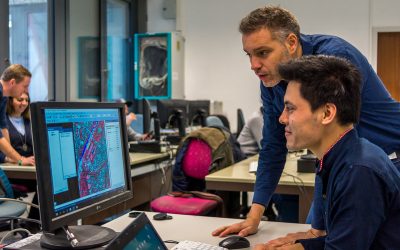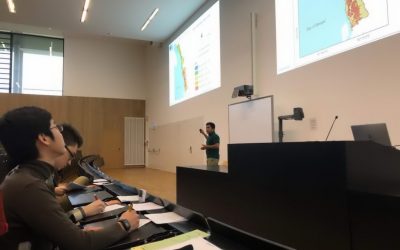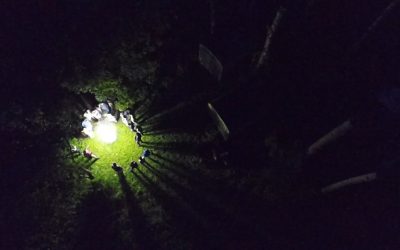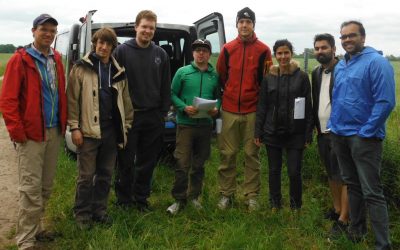Aim
Within this course we aim to discuss and develop a knowledge platform, using existing remote sensing tools and products, to enable conservation impact in cooperation with experts from WWF Germany.
Content
In this seminar we want to tackle the questions how remote sensing-derived products can support conservation and sustainable, equitable development and help NGOs to better monitor, understand and evaluate the effectiveness of their work. As WWF Germany we want to stop the worldwide destruction of nature and the environment and shape a future, in which humans and nature live in harmony with each other. Spatial biodiversity and environmental data availability are growing rapidly and provide a remarkable opportunity for NGOs. However, direct use of EO based information is currently still limited. Expert knowledge is needed to find, evaluate, and correctly apply the RS products. Experts from our practices will join the seminar outlining their current needs, concerns and challenges. Using their requirements, we will review existing remote sensing products, services and research methodologies and discuss potential applications, pitfalls, and limitations. Each team of students will work on one thematic to pic. The output of this seminar will be an interactive short info sheets prepared by each team for non-experts publicly available on https://space-science.wwf.de as an ESRI ArcGIS online story map and map apps with suitable data via GLOBIL.
Coding
Coding examples and individual work will be covered
Software
Various software programs will be used, but mainly OpenSource software such as R.
Techniques
Different techniques will be introduced and practically applied.
Content
The content of scientific with regard to the audience will be discussed.
General Course News and Updates
EAGLE students coding with sweets
Today our EAGLE students applied data munging, pipes, plotting and statistics using colour distribution of sweets. They specifically used the dplyr, ggplot, kableExtra and others to compute derivatives, rearrange the data, plot it and run statistics on colour...
Final presentations of the remote sensing programming course
The final project presentations of the spatial coding course by the EAGLE students revealed quite some impressive analysis achieved within the last couple of months. All analysis were done using R and presentations created within R using knitr. The aim was to run a...
internship and innovation laboratory presentations
The following internship and innovation laboratory projects were presented today: Karsten Wiertz did his internship at the Białowieza national park on "Spatio-temporal analysis of tree mortality and gaps in the Białowieza Forest using high resolution imagery". Jakob...
Spatial Python block course
Last week Steven Hill and Thorsten Dahms gave a course that introduced EAGLE students to Python-based spatial data analysis. The advantages and challenges of different python libraries, data sets and methods were covered in hands-on exercises and also discussed...
Interdisciplinary course in the Bavarian Forest
The Bavarian Forest and the Bohemian Forest together form the largest contiguous forest area in central Europe, which is of an extraordinary importance for the protection and maintenance of biological diversity. Since 1970, a large area of the forest is protected as a...
One week courses on hyperspectral and time-series analysis
In the past few weeks various block courses by colleagues from DLR have taken place. Divers topics how remote sensing can be used, which methods have to be applied and how to put it into practice were covered by our colleagues Hannes Taubenböck, Martin Bachmann and...
Urban Geography Course by Hannes Taubenböck
Hannes Taubenböck from DLR discussed with our EAGLE students the application of remote sensing applications within urban research.
Scientific Presentation of Earth Observation Applications
As every term our students could participated in a scientific presentation course where they learned how to prepare, design and defend a scientific talk. Beside the theoretical part many practical exercises were part of this course and a final presentation in a large...
Remote Sensing in Ecology
The EAGLE course "Remote Sensing in Biodiversity and Conservation Science" took place in the last week of the summer term at the field research station in Fabrik Schleichach, Steigerwald. 20 biology and EAGLE students worked and lived together for one week and...
First EAGLE field methods course successfully accomplished
The first field methods course in our EAGLE MSc programme took place in the JECAM test site of DEMMIN-Germany (close to the city of Demmin in Mecklenburg-Vorpommerania) from 12.- 17.6.2017. Six EAGLE students, one colleagues of DLR, Dr. Erik Borg, and two lecturers,...










